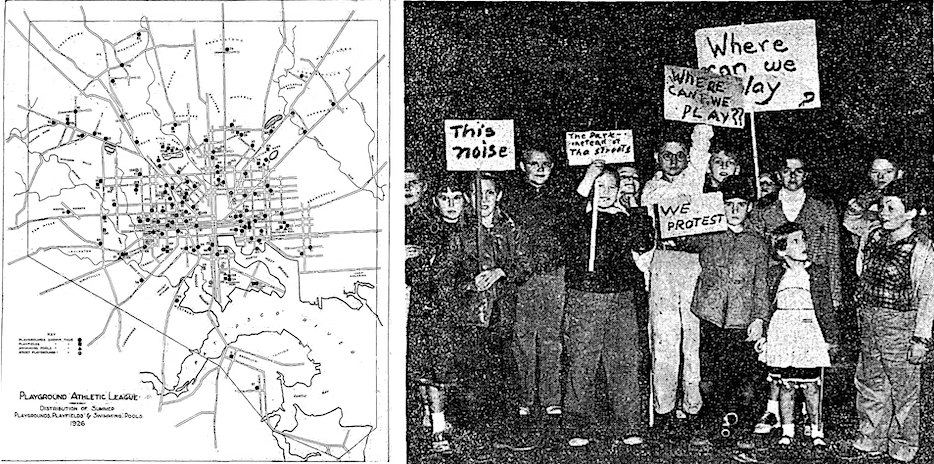
- This event has passed.
No Ball Playing: Baltimore Kids Playing in Streets and Hanging on Corners (Virtual Talk)
November 4, 2022 @ 1:00 pm - 1:30 pm
By Donation
Before the early 1900s, families in Baltimore never had to tell a kid to “watch out for cars”. However, as the number of cars in the city grew during the early 20th century, playing in the street became increasingly dangerous and even illegal. Criminalizing children at play has a long history in Baltimore from complaints in the Sun about young “baseball maniacs” breaking windows in the 1870s to a 1898 police order designed to “disperse” children from gathering on newly “smoothly paved streets to play.” In 1910, the Children’s Playground Association of Baltimore formed a “Guild of Play” to host supervised street play at locations around the city and started working to keep children safe through building more playgrounds. Despite their efforts and others, more than one in three East Baltimore youth surveyed in 2017 said they didn’t have or didn’t know of any safe place to play in their neighborhood.
Join planner and historian Eli Pousson for a lunch-time talk on the history of street play and the policing of children in public space from the 19th century through the present-day.
About the speaker
Eli Pousson is a local historian, former Baltimore Heritage staff member, Bikemore board member, and INSPIRE Planner for the Baltimore City Department of Planning (since June 2022). Eli is also a parent of three busy kids that give him plenty of opportunities to visit playgrounds, play in the street, and shout “watch out for cars”.
Please see your email confirmation for instructions on how to get the Zoom Link for this program. If you have any questions, please email mhudson@aiabalt.com.
